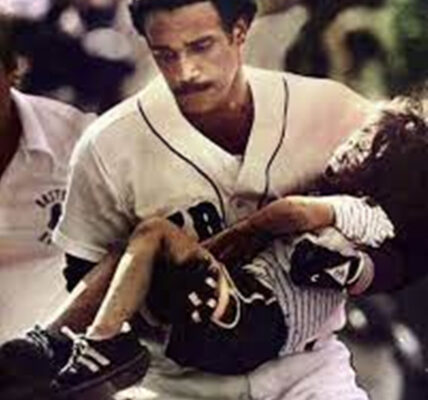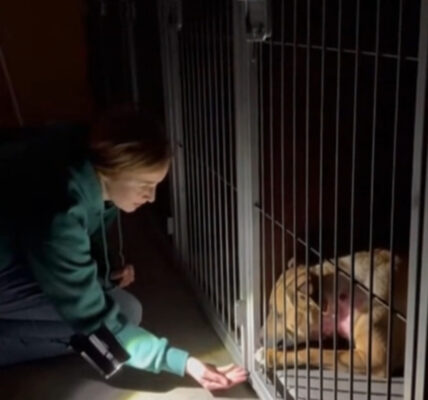- Homepage
- Uncategorized
- The Boy Who Taught Me How to Eat Uncooked Noodles.
The Boy Who Taught Me How to Eat Uncooked Noodles.

Tonight, something small happened in our kitchen — something so quiet and ordinary that, to someone else, it might have looked like nothing at all.
But for us, it was the closing of a chapter that took two and a half years to write.
My son — who is nine now, but who still carries the shadows of a childhood he should never have known — walked toward the table with a bowl in his hands. He moved casually, almost shyly, as if hoping I wouldn’t notice what he was doing.
“What are you up to?” I asked, just making conversation.
“I was hungry,” he said. “So I made food for myself.”
And he wasn’t wrong — he had made food.
But the noodles in the bowl were raw.
At first, I smiled. “Hey, I can cook that for you. It’s super easy.”
But he shook his head immediately.
No hesitation.
No second thoughts.
“I just wanted to eat something I used to have with my old family.”
Just like that, the air shifted.
The room felt smaller, quieter.
And so did he — not the nine-year-old in front of me, but the six-year-old he used to be.
I pulled out a chair and sat beside him.
“Tell me what you mean,” I said softly.
What He Survived
It’s hard to wrap your mind around what a six-year-old can live through and still be standing.
Before he ever came to us, before anyone stepped in to help, he had been the one feeding two younger siblings — a toddler barely two years old and an infant not yet five months.
His parents didn’t cook.
His parents barely fed him.
And when they did, it depended on whether he happened to be awake.
Food was scarce.
Money was spent on things that kept them numb.
Love was something he never learned the shape of.
So he adapted the only way a child in his position could.
He searched the back of their van for loose coins.
He learned which stores wouldn’t chase a skinny six-year-old away.
He bought packets of ramen — not for warmth, not for comfort, but simply because a child can tear them open with small fingers.
He didn’t know how to cook them.
No one had ever shown him.
So he ate them dry — noodles broken into pieces, sauce sprinkled on top.
Crunchy. Salty. Enough to keep him alive.
And even then, even in survival mode, even with a stomach that was always empty, he would break the noodles apart and divide them between his siblings.
He fed them before he fed himself.
He tried to make bottles for the baby, even when he didn’t understand how.
He did everything he could — at six years old — to keep them alive.
Some children have childhoods.
He had responsibilities.
“Show Me How You Used to Make It.”
So tonight, instead of insisting on cooking the noodles, instead of telling him to change the way he ate them, I took a breath and said:
“Show me. I want to learn your way.”
He blinked at me — surprised.
And then he smiled.
We sat on the floor together because that’s how he used to eat them.
We broke the stiff noodles with our hands, each snap echoing with memories he rarely speaks about.
We sprinkled the seasoning.
We mixed the pieces around.
He laughed — actually laughed — when I did it wrong.
“Not like that,” he giggled. “Here, like this. You have to crunch it more.”
The sound of his laughter filled the room in a way I wish I could bottle forever.
At one point, he paused, looked at the noodles, then up at me.
“You know,” he said quietly, “when you first made ramen for me… the normal kind… I didn’t want to eat it.”
“I remember,” I told him gently. “You cried.”
He nodded.
“I couldn’t trust you back then.”
The words were soft, but they hit like a stone to the chest — not because they hurt, but because they were true.
Pretty deep thinking for a nine-year-old.
But trauma ages children long before their birthdays do.
From Survival to Safety
The thing about children from hard places is that they never forget the world they came from. They learn to survive before they learn to play. They flinch at kindness. They test love. They wait — silently, anxiously — for it to be taken away.
Healing is not instant.
It is slow, uneven, and marked by unexpected moments like this one —
raw noodles, broken memories, and a child choosing to let you into a part of his story.
Tonight wasn’t about food.
It wasn’t about ramen.
It wasn’t about nostalgia.
It was about trust.
The kind of trust that is earned through sleepless nights, patient explanations, soft voices, gentle boundaries, and love that is steady — even on days when their fear makes them push you away.
Tonight, my son let me step into a memory he had carried alone for years.
And then, he let me rewrite it with him.
What Love Can Do
Now he knows he doesn’t have to search a van for coins.
He doesn’t have to break dry noodles to feed his siblings.
He doesn’t have to worry about whether he’ll be allowed to eat.
He doesn’t have to be a parent at six years old.
He knows he is safe.
He knows he is loved.
He knows he is home.
He knows he never has to face hunger — or fear — alone ever again.
And I walked away tonight feeling so many emotions — sadness for the child he had been, admiration for the strength he had shown, and pride, overwhelming pride, for the boy he has become.
Kids from trauma are not “problem children.”
They are survivors.
They are resilient.
They are brave in ways most adults will never be.
They do not need pity.
They need patience.
They need understanding.
They need someone who will sit on the floor and eat uncooked noodles just because it matters to them.
Because once upon a time, that was the only world they knew.




